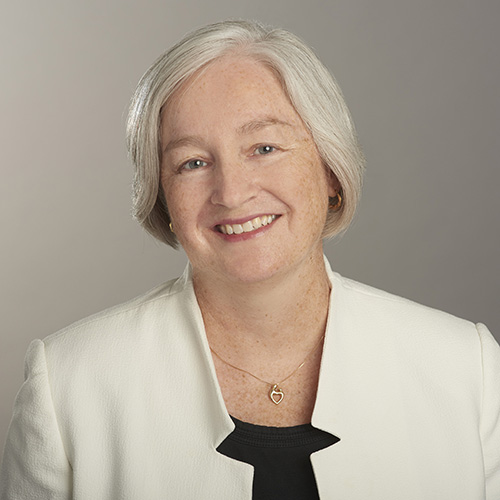A battle is being waged by three home care associations to stop implementation of a new minimum wage and overtime regulation. However, the litigation took a turn in favor of their adversary on August 21, 2015. In Home Care Association of America et al. v. Weil (No. 15-5018), the U.S. Court of Appeals for the District of Columbia unanimously upheld a US Department of Labor (“DOL”) rule requiring home care agencies to pay the minimum wage and overtime to domestic workers who provide in-home care for the elderly, ill or disabled. The Court of Appeals also decided that the plaintiffs lacked standing to challenge a different part of the regulation. Under that provision, domestic workers who provide in-home companionship services (such as meal preparation, bed making, and similar services for the fellowship, care and protection of a person who cannot care for his or her own needs) are “non-exempt” from overtime if the “care” they provide is more than 20 percent of the total weekly hours worked.
The DOL updated its domestic service regulations under the Fair Labor Standards Act (“FLSA”) in 2013. Before then, the DOL’s regulations had exempted domestic service workers providing companionship services from minimum wage and overtime pay, regardless of who employed them. The revised regulations were set to take effect on January 1, 2015. The plaintiffs, associations of third-party agencies who hire individuals to provide in-home care services, challenged two provisions of the new regulations. The first provision extends minimum wage and overtime protections to domestic workers employed by third-party providers rather than families. The second clause includes a narrower definition of the term “companionship services” and requires workers to spend less than 20 percent of their time providing “care” in order to remain exempt from overtime.
The plaintiffs won in the lower court. On December 22, 2014, the court vacated the first provision. As a result, third-party employers could still “avail themselves” of the exemption from minimum wage and overtime for workers they employed. On January 14, 2015, the trial court vacated the second provision. As to both provisions, the judge held that even though the DOL has the authority to issue regulations to define terms used in the FLSA, the DOL was attempting to change the definitions in a way that directly conflicted with the FLSA. For example, the court held that essentially removing “care” from the definition of “companionship services” would “defy logic and Congressional intent.”
On August 21st, however, the Court of Appeals overturned the lower court and held that the FLSA gives the DOL the discretion to extend the FLSA’s minimum wage and overtime protections to additional categories of domestic workers. The Court noted that there has been a dramatic shift in the provision of residential care services. Previously, long-term care for the elderly and disabled took place in institutional settings such as hospitals and nursing homes, while home health care workers were largely “elder sitters.” Now, due to the rising cost of institutional care and other factors, individuals needing long-term care are increasingly receiving services in their own homes. To meet that need, third-party agencies employ a greater number of workers providing in-home care. Those workers are more often professional caregivers with training and certifications, working for companies who profit from their services. According to DOL statistics cited in the regulations, home health aide employment increased by 65 percent between 2001 and 2011 to 924,650 workers and personal care aide employment doubled to 820,600 workers.
The Court of Appeals reasoned that a prior Supreme Court decision gave the DOL the authority to decide whether or not employees of third-party agencies were exempt from overtime. The Court also held that the DOL’s decision to expand overtime protections to domestic workers employed by third parties was reasonable and supported Congress’s intent to protect more workers. The Court said that the DOL did not need to satisfy any “higher burden” when changing its prior position, as long as the change was based on a reasoned explanation. Here, the transformation of the home care industry justified the DOL’s decision.
Because the Court agreed with the DOL that third-party employers may not avail themselves of the FLSA overtime exemptions, the Court then decided that the plaintiffs did not have standing to challenge the changed definition of “companionship services.” As a result, the DOL’s regulation stands as written, and domestic workers might not be exempt from overtime, depending on the nature of the companionship services they provide.
In September 2015, the home care associations tried to delay the Court of Appeals ruling while they pursue an appeal before the United States Supreme Court. They argued that the new rule will irreparably harm home care workers, elderly and disabled clients, and Medicaid systems across the country. On September 18, the Court of Appeals rejected the plaintiffs’ request for a delay. The parties expect that the Court will issue an order to the lower court by October 13, 2015 to enter judgment in the DOL’s favor.
Unless the Supreme Court changes the course of this case, nearly two million home care workers will qualify for minimum wage and overtime protections under the FLSA under the amended regulations. In New Hampshire, the minimum wage is $7.25 per hour; in Massachusetts, the minimum wage rate is $9.00. The DOL, which has been educating workers and encouraging employers to prepare for compliance, will move ahead promptly with final implementation of the amended regulations, although it has announced that it will not bring any enforcement actions against employers under the amended regulations for 30 days, and will exercise “prosecutorial discretion” in determining whether to bring enforcement actions prior to December 31, 2015, depending on whether a particular agency has made good faith efforts to bring its program into compliance.
Employers with home healthcare workers are encouraged to seek assistance with these matters before the changes go into effect.
